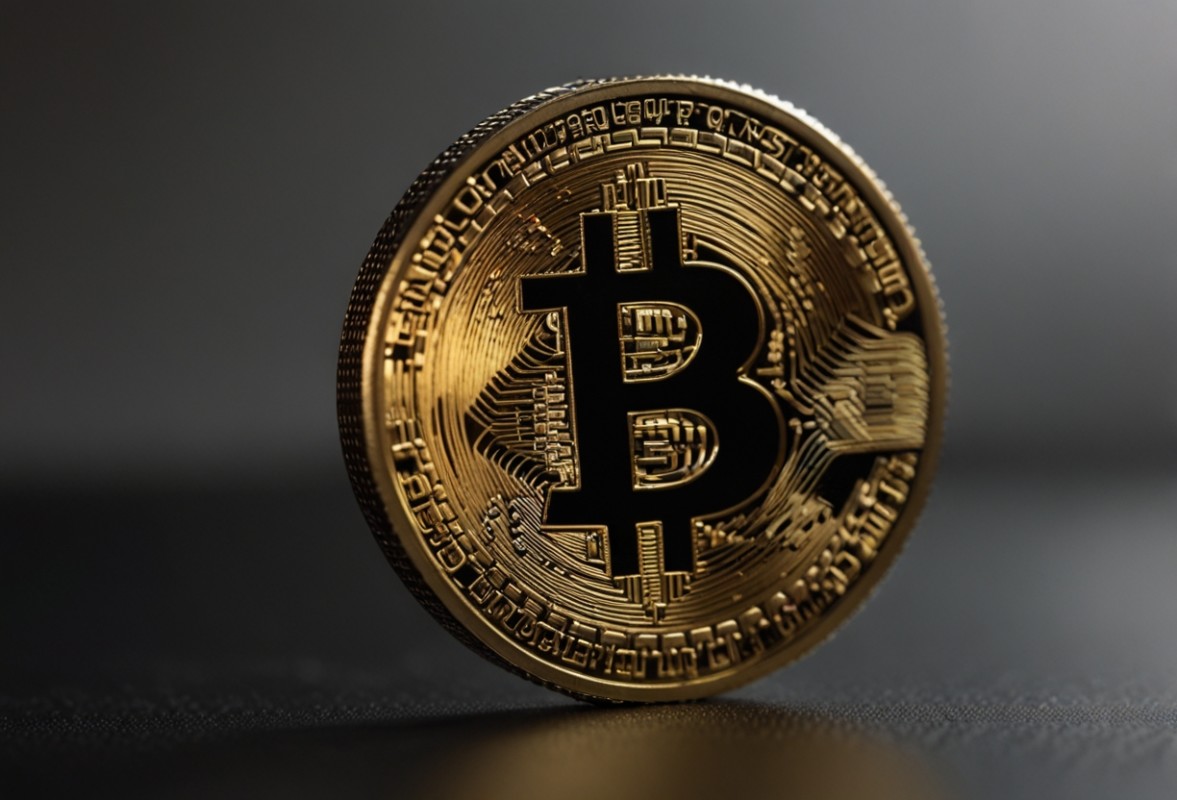Month: August 2024
Occupy Bitcoin: Bitcoin Is Not Just Libertarian
Bitcoin has experienced enormous growth in the past fifteen years since its inception, and with that has come numerous monumental shifts in the culture of the overall ecosystem, as well as the smaller individual communities that make it up. This is obviously something to be expected as the network grew from a tiny niche thing in the corner of the internet to a global phenomenon now becoming a serious political issue all across the world.
Bitcoin is no longer a tiny niche thing in the corner, or a toy that only a few autistic nerds are tinkering with, it is a global economic asset and monetary network transferring billions of dollars all over the world every day. Things have obviously changed in the process of that growth, but I think that changing shift has come with substantial negative consequences.
There has always been a perceived libertarian or rightwing bent to Bitcoin. Some of the earliest adopters and communities that formed around Bitcoin were based on the libertarian philosophy, and it does make sense when looked at from a theoretical perspective. Libertarianism is ostensibly about the individual asserting and maintaining their own freedom and independence in their life. But that was not the only group of people, or the only philosophy, that was present early in Bitcoin’s history.
Many people came to Bitcoin through left leaning movements such as Occupy Wall Street, the large scale protest movement that was born in response to the same Great Financial Crisis that birthed Bitcoin itself. They too saw a need to disintermediate the banks in the global economy in the wake of the disastrous consequences that resulted from their reckless and irresponsible gambling with everyday people’s savings and investments in the course of operating the economy. They too saw a need to remove control over that economy from the hands of the governments that selectively deregulated it to allow that gambling to occur in the first place.
Both of these groups came here for the same reasons, disintermediation. The removal of mega banks and governments as a middleman involved in everyone’s financial transactions, hell, the operation of the global economy as a whole. But in the collective cultural mind it is libertarianism, the right wing of the political spectrum, that has become widely associated with Bitcoin.
The problem with that is at large most of them have not actually held to their proclaimed beliefs.
Bitcoin was designed to be an open disintermediated system, where anyone and everyone can make use of it. I am not speaking technologically, people reading this absolutely understand that on a technological level Bitcoin requires constraints in order to maintain the decentralization that gives it value in the first place, and that compromising those constraints is a death shot. I am speaking philosophically.
On the technical level scaling Bitcoin to be as open to as many people as possible is an ongoing challenge, and will remain one for the foreseeable future, if not forever. Those are constraints posed by the nature of the technology.
On a human and personal level, Bitcoin requires no constraints. It is an open voluntary system of consensus, with its nature and function defined entirely by that voluntary consensus created by the opt-in interactions of all of its users and participants. Many so-called libertarians are seemingly deeply offended and unnerved by this.
The actions of a massive portion of the active community, at least online, act in complete contradiction with the principles of libertarianism. Freedom, liberty, and voluntary interaction. Many rightwing or libertarian Bitcoiners encourage the exact opposite of that, they bully and intimidate and push people to adopt their worldview.
Their actions speak to conformity, and pressure to act a certain way, or believe certain things, rather than a respect for individual choices and beliefs that differ from their own. They attempt to infuse the idea of being a Bitcoiner, or involved in Bitcoin at all, as being equivalent to holding their beliefs and worldview. They constantly engage in shaming campaigns, in many instances bordering on or crossing into harassment, to try and enforce this equivalence of their worldview with “being a Bitcoiner.”
While I do not believe this is in actuality the dominant attitude of people in the space, it is definitely predominant in some sub-communities, and is most definitely the perceived dominant attitude in public on internet platforms. And it stands in complete contradiction to the espoused beliefs of libertarianism, individual liberty and respect, and self determination in how people want to live their lives.
The only place I actually widely see the actions, not the words, of individuals reflect such beliefs is (I’m sure ironically to some reading) the left. Progressive and left leaning Bitcoiners seem to be the only people willing to engage in any meaningful way with people who think or view the world in radically different ways without defaulting to shaming or pressuring people to adopt their own worldview. They are the people working towards opening a path to adoption for people of diverse views and backgrounds, different needs, and trying to ensure that Bitcoin can help as many people as possible.
In contrast, right leaning Bitcoiners tend to shame, attack, and discourage people who hold different world views than them. Generally deriding attempts to address such people’s needs or issues with Bitcoin. The common chant or reaction is “Bitcoin isn’t for everyone.” Or “poor people won’t ever actually use Bitcoin self-custodially.” It embodies a very “I’ve got mine, so pull the ladder up behind me” attitude about things.
It is usually couched in an attitude of appealing to technical arguments, but the vast majority of people making such claims generally do not actually articulate coherent technical reasoning for such a “forget those people” argument. They make appeals to fear and uncertainty to bolster their arguments, rather than raise coherent and articulate technical concerns.
Many of these people espouse and wrap themselves in fantasies of being powerful, rich, and influential. They tell themselves that because they were “smart enough” to buy bitcoin early on that they deserve such a position in the world, and others who were not “smart enough” do not. It’s almost a fetishization of becoming the people that Bitcoin was meant to disintermediate from all of our lives.
Yes, Bitcoin has technical limitations. And yes, that almost certainly means that third parties will not be fully disintermediated from our lives, but that does not mean that this is something to embrace and champion. Something to relish thinking about being that intermediary yourself, or waiving your hand and magically going “the market will solve this” pretending that governments don’t exist, ever in search of new private entities to subject and turn into deputized lackeys enforcing control over our financial transactions and lives.
Speaking of government interference in markets, this is something else that rightwing Bitcoiners compromise in terms of principles. Making excuses for, or even outright encouraging, the creep of influence on services and products in this space, while simultaneously attacking anything trying to escape the reach of enforcement or regulation. It’s a state of cognitive dissonance, appealing entirely to the market to magically prevent the “poor” Bitcoiners from being abused and taken advantage of in the same way as the financial system, while just pretending Bitcoin’s mere existence will stop government from forcing large private actors to act as an enforcement arm in that abuse.
When communal custodial solutions get discussed, such as ecash or other systems built on Lightning, that can be operated in a cost effective yet not highly centralized (at least in scale) manner in places like Africa, they get ridiculed. They get painted as scams waiting to happen, or completely unworkable solutions, while at the same time the critics prance around as if Bitcoin will magically win. As if there are no problems to solve to make it more widely accessible in a way that scales to bring a means of using it free from those risks to more people.
I’ve got mine, so fuck you.
The libertarians in Bitcoin have for the most part completely lost the plot of what it was originally made for. To disintermediate peoples’ financial lives. They cheer on Wall Street influence, politicians pandering, and the growing institutionalization of the whole system as progress.
“We’re going to get our seat at the table now, don’t upset the game!”
They don’t care anymore about uplifting people as a whole, or ensuring that everyone has the freedom to experiment and live their lives how they want, structure their communities and societies how they want, on the bedrock of a neutral disintermediated system. They cheer for conformity, homogeneity, bowing to their worldview. They view Bitcoin as a way to bend the world to their beliefs, their will, their way of living. It’s no longer seen by most as a framework for diverse experimentation and differentiation.
It’s the progressives, the leftists, those who came in through roads like Occupy Wall Street, that still seem to care about making Bitcoin the most that it can be for everyone. It’s time for this to be recognized, and for people to shrug off parasitic pressure to conform.
For the nerds that will get the reference, Infinite Diversity in Infinite Combinations. That is what Bitcoin should be.
Dollar gains on geopolitical tensions, pound slips after rate cut
Post Content
Hong Kong’s Largest Online Broker Launched Bitcoin Trading
Futu Securities, Hong Kong’s biggest online brokerage with over 3.5 million customers, has launched retail Bitcoin trading on its platform. As per South China Morning Post, users can now directly buy and sell Bitcoin and ether using Hong Kong or US dollars.
JUST IN: 🇭🇰 Hong Kong’s largest online broker Futu has launched #Bitcoin and crypto trading. pic.twitter.com/sGDxbx83is
— Bitcoin Magazine (@BitcoinMagazine) August 1, 2024
Futu is the first online broker in Hong Kong to offer direct Bitcoin access to retail investors. Last month, the company received approval from the city’s Securities and Futures Commission (SFC) to provide virtual asset dealing services.
The move comes as Hong Kong approved a Bitcoin and Ethereum exchange-traded fund earlier this year. With a new licensing regime for exchanges and other policy initiatives, Hong Kong aims to position itself as a Bitcoin and crypto hub.
By allowing retail Bitcoin trading on its main app, Futu is leapfrogging rivals. It has also applied for a full Bitcoin and crypto exchange license for its PantherTrade platform, one of 11 “deemed licensed” interim exchanges in Hong Kong awaiting SFC approval.
To attract new Bitcoin and crypto users, Futu is offering incentives like Alibaba and Nvidia stock as rewards. Customers who deposit HK$10,000 for 60 days get HK$600 of Bitcoin or vouchers and shares. Bigger depositors can earn more rewards.
Futu is also waiving Bitcoin trading commissions for now to gain market share. It is partnering with licensed exchange HashKey to enable trading under SFC rules.
By leveraging its large client base, Futu can uniquely drive significant retail volume for Bitcoin trading in Hong Kong. Its brand name gives its Bitcoin platform instant credibility and trust.
Bitcoin Hashrate Hits New All-Time Highs
According to Bitcoin Magazine Pro, the 7-day average mining hash rate for Bitcoin has hit a new all-time high, surpassing 667 exahashes per second (EH/s) on July 26th during the Bitcoin 2024 conference. This tops the previous record of 657 EH/s set on May 26th.
The hash rate refers to the total computational power miners dedicate to processing transactions and mining new blocks on the Bitcoin blockchain. A higher hash rate means greater competition among miners to validate blocks, making the network more resistant to manipulation or attack.
Major mining firms like Whatsminer and MicroBT are rolling out new powerful machines to capitalize on the hash rate boom. Whatsminer unveiled four new mining rigs and an upcoming solar mining container system. MicroBT introduced its M6XS+ miners, which can handle 190 to 450 terahash.
Riot Platforms also acquired Block Mining for $92.5 million to expand its hash rate and market reach. Miners are exploring AI integration and acquisition opportunities to navigate ongoing identity challenges.
The boost in miners’ revenue from Bitcoin’s rising price has cooled selling pressure and stabilized network activity. Outflows from miners remained under $10,000 per day in July compared to over $20,000 in March when BTC first hit $70,000.
Overall, Bitcoin’s climbing hashrate reflects a vote of confidence in its long-term viability. With major mining innovations and favourable politics boosting revenues, miners are aggressively expanding infrastructure to process transactions and secure the Bitcoin network.
Dollar steadies after Fed-inspired losses; sterling weak ahead of BOE
Post Content
BOJ shift gives yen a shake and causes reassessment of popular FX trade
Post Content
Asia FX firms on rate cut bets, yen at 5-mth high on hawkish BOJ
Post Content






